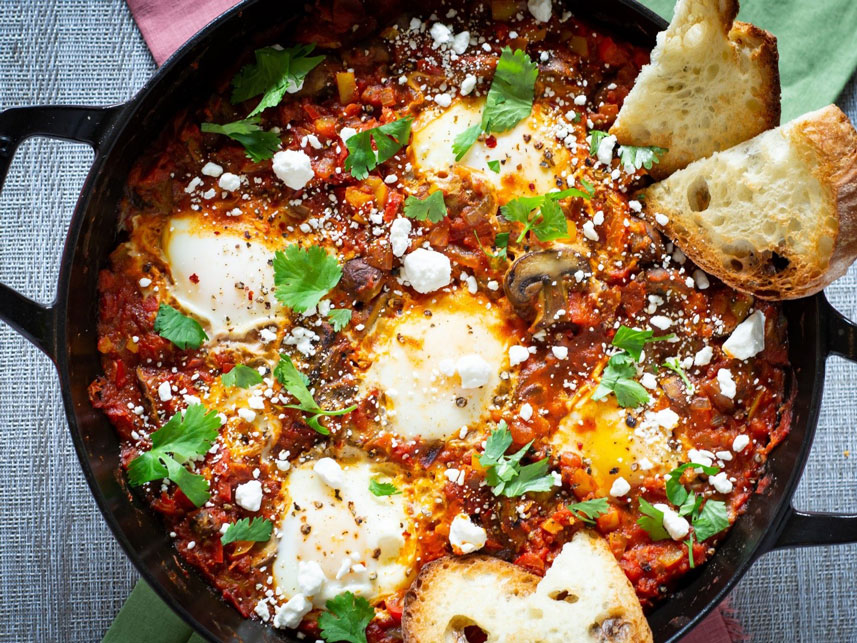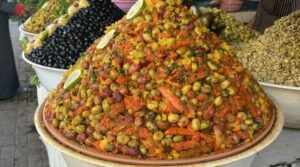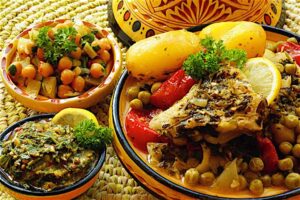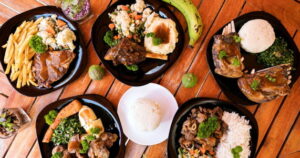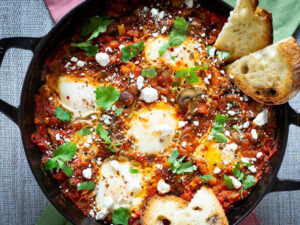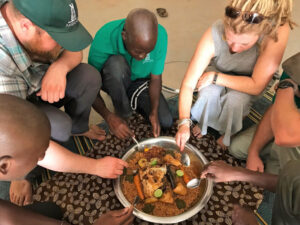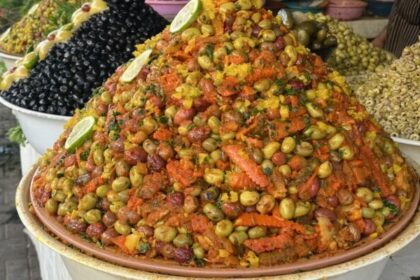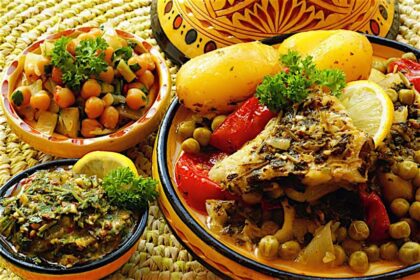Table of Contents
Welcome to the mesmerizing world of Moroccan cuisine, a vibrant tapestry woven with diverse flavors, rich traditions, and culinary delights that reflect the country’s unique geographic location and culture.
Situated in North Africa, Morocco’s geographical location plays a significant role in shaping its cuisine. Bordered by the Atlantic Ocean and the Mediterranean Sea to the west and north, and the Sahara Desert to the south, Morocco enjoys an abundance of fresh seafood, fertile lands, and an array of aromatic spices, creating a culinary landscape that is both exotic and comforting.
Get ready to embark on a tantalizing journey through the colorful and flavorful world of Moroccan cuisine! In Morocco, every dish is a masterpiece, carefully crafted with a medley of aromatic spices, fresh herbs, and the finest ingredients. Bon appétit!
1. Tagine
2. Couscous
3. Pastilla
4. Harira
5. Mechoui
6. Mint Tea
7. Moroccan Salads
8. Khobz
9. Harcha
10. Orange Blossom Water
Overview of Best Foods & Drinks to Try Out in Morocco
How to choose Best Foods & Drinks to Try Out in Morocco
Pros & cons of Best Foods & Drinks to Try Out in Morocco
What to watch out for
Pro tips
Recap
1. Tagine
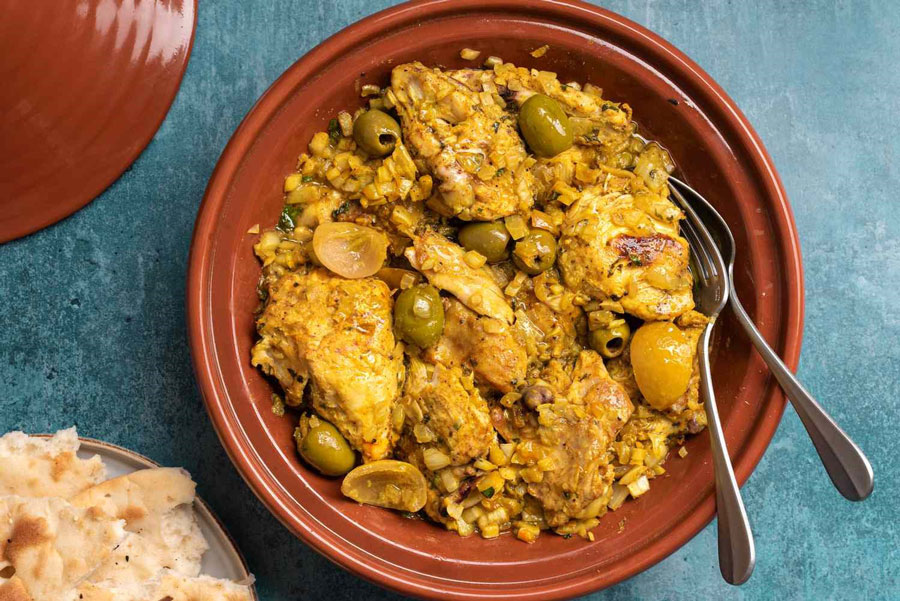
If you’re on the hunt for a culinary masterpiece that embodies the heart and soul of Morocco, look no further than the marvelous tagine!
- Offers a variety of options of meats
- Allows the ingredients to marinate and infuse, creating a rich and tantalizing taste
- Is an ideal choice for a satisfying meal especially during cooler weather or after a long day of exploration
- Takes longer time to cook
- Has intense flavors that might not suit everyone’s taste preferences
- Consists of combination of meat such as lamb, chicken, beef or fish
- Is slow-cooked with a flavor blend of spices, herbs, and other ingredients like ginger, cumin, coriander, saffron, paprika and cinnamon
- Is cooked in a clay pot called tagine
- Has variation in region and season
- Offers a wide range of options to explore, from lamb with dried fruits and almonds for vegetarian bursting with colorful vegetables
2. Couscous
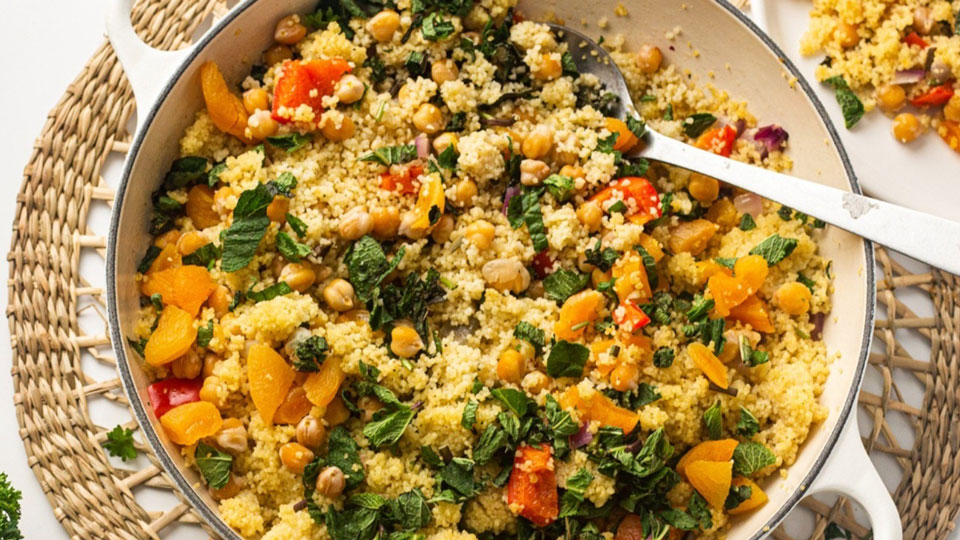
If you’re seeking the epitome of Moroccan culinary artistry and a dish that encapsulates the soul of this captivating country, then couscous is your crown jewel.
- Is versatile and can be paired with a wide variety of ingredients
- Is suitable for different dietary preferences including meat-based, vegetarian and vegan options
- Is quick and easy to prepare
- Is light and nutritious
- Is not suitable if you are gluten sensitive or have celiac disease
- Requires proper preparation
- Can be easily overate due to its light and fluffy nature
- Has different variations, from texture to size
- Acts as a canvas for various spices, herbs and ingredients
- Can be paired with flavorful sauces, meats or vegetable to create a dish bursting with taste
- Is rich is carbohydrates, protein and fiber
3. Pastilla
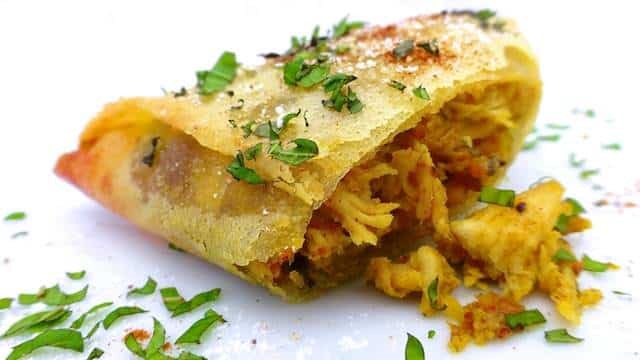
Pastilla – a culinary gem that deserves its place as one of Morocco’s best dishes! Prepare to be enchanted by its unique blend of flavors, a symphony of savory and sweet that will sweep you off your feet.
- Offers a truly unique blend of flavors
- Is deeply rooted in Moroccan culture
- Has an intricating preparation and layering, making it a culinary masterpiece
- Showcases the artistry and craftmanship of Moroccan cuisine
- Can be time consuming to prepare
- May not be suitable for vegetarians
- Has components that includes shredded meat (usually chicken), saffron, ginger, ground almonds, eggs, parsley, onion, cinnamon and a touch of powdered sugar
- Can be prepared with other meats such as lamb or seafood
- Is baked in the oven until golden brown and crispy and the interior remains moist and luscious
- Has a fusion of sweet and savory
4. Harira
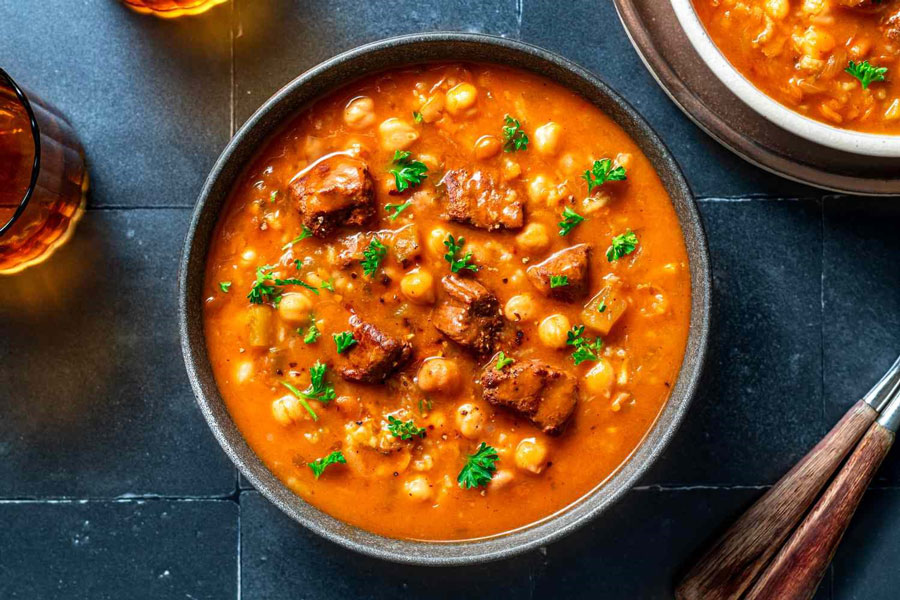
Harira is a soup that warms the soul, a comforting embrace on a chilly day or after a day of fasting. Its nourishing and wholesome qualities make it a go-to dish, providing sustenance and comfort in every spoonful.
- Boasts of rich and flavorful broth
- Is wholesome and nutritious
- Holds a significant cultural importance in Morocco
- Is time-consuming to prepare
- Has calorie content due to the inclusion of meat and legumes
- Has key ingredients that includes tomatoes, lentils, chickpeas, onion, cilantros, parsley with a combination of spices like ginger, saffron, turmeric, cinnamon, smen (a traditional butter)
- Served with dates or Moroccan bread
5. Mechoui
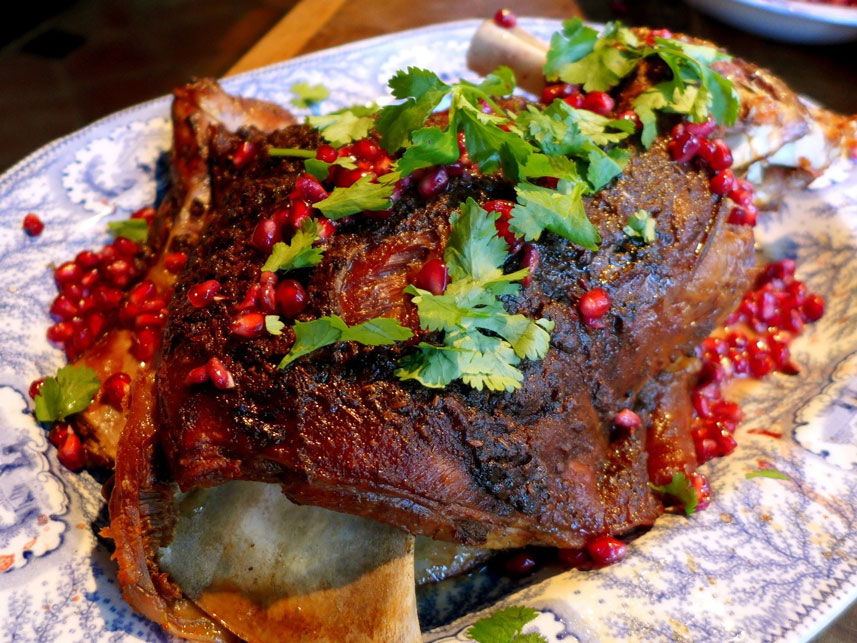
If you’re seeking a dish that encapsulates the spirit of celebration, the essence of Moroccan hospitality, and the delight of slow-roasted perfection, then Mechoui is the one to choose.
- Offers a rich and succulent taste
- Is simple and authentic
- Reflect deep-rooted traditions and culinary heritage
- Requires a considerable amount of time to slow-roast the meat to perfection
- Requires special equipment like open fire or an underground pit
- Prepared by slow-roasting whole lamb infused with a blend of aromatic spices like cumin, coriander, paprika, saffron, garlic and other regional seasonings
- Is often associated with certain seasons, particularly spring and summer
6. Mint Tea
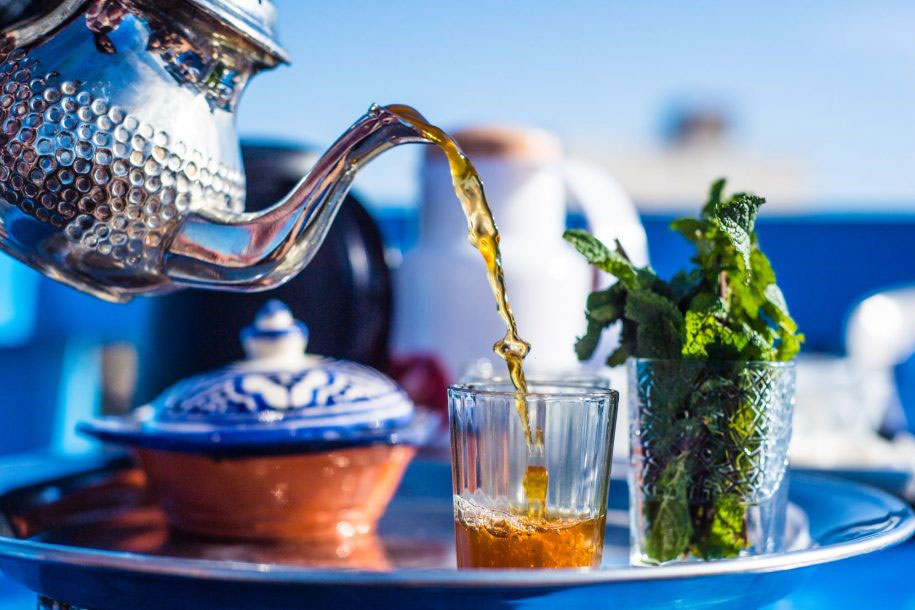
Once you experience the magic of mint tea, you’ll understand why it has a special place in the hearts of Moroccans and why it’s the crown jewel of Moroccan beverages
- Is refreshing and aromatic
- Helps to smooth the stomach after meals
- Has potential health benefits like aiding digestion, relieving nausea and promoting relaxation
- Consists caffeine but at a lower level
- May not be suitable if you are allergic to mint
- Has key ingredients including fresh green tea leaves, sprigs of fresh mint (usually spearmint or peppermint) and sugar or honey to add sweetness
- Is served in a small, slender glass cups with a decorative metal teapot, often with a long spout, known as a “berrad”
7. Moroccan Salads
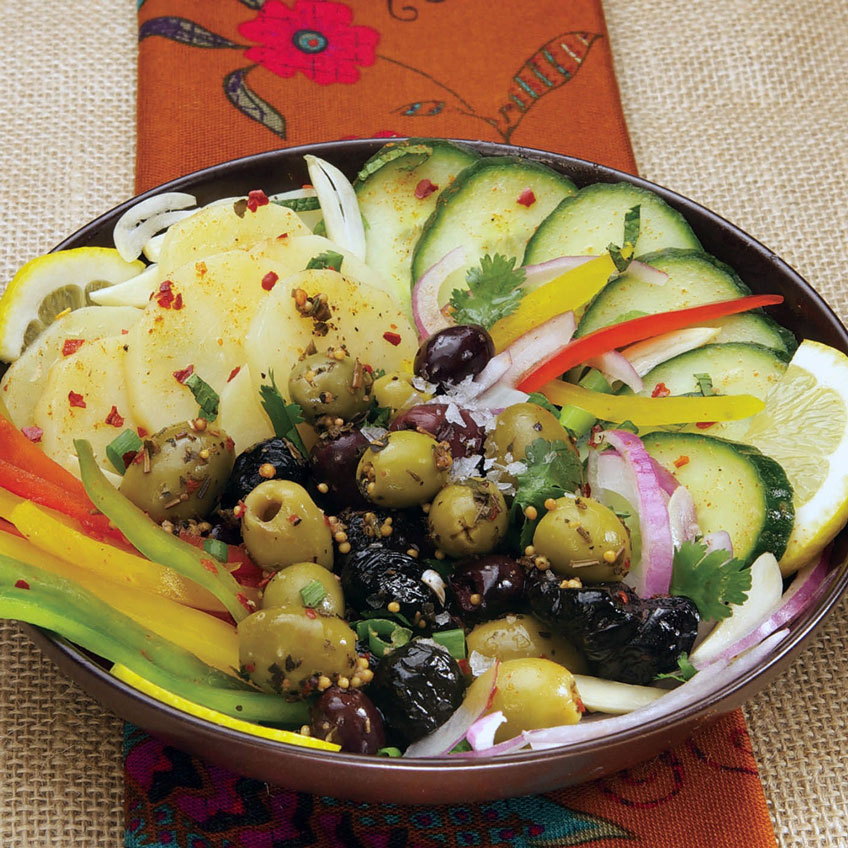
Moroccan salads, known as “salades marocaines,” are a dazzling array of colorful and refreshing dishes that celebrate the bountiful produce and aromatic spices of this enchanting land. They are not just side dishes but culinary masterpieces in their own right, each showcasing a unique blend of flavors, textures, and artistic presentation.
- Is vibrant and flavorful
- Has a wide variety
- Is fresh and nutritious
- Has vegetarian and vegan options
- Requires intricate preparation and chopping
- Can be quite spicy due to the use of chili and other spices
- Has different types chickpea salad, lentil salad, potato salad, green salad, beet salad, cucumber salad, carrot salad, taktouka and zaalouk
PRO TIPS >>> Africa Tourism – Best Family Journeys in Africa
8. Khobz
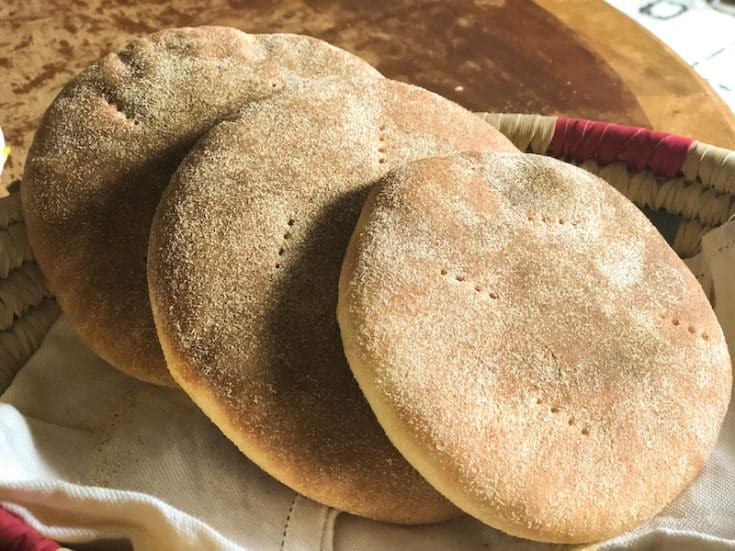
Trying Khobz in Morocco is more than just eating a delicious bread; it’s about immersing yourself in the country’s culture, history, and spirit. The memories you create while sharing Khobz with locals will stay with you forever.
- Holds deep cultural significance in Morocco
- Is widely available
- Is versatile and can be enjoyed with various dishes
- May not offer a wide range of essential nutrients
- May not be suitable for those with gluten sensitivities or celiac disease
- Is made from ingredients like wheat flour, water, yeast and salt
- Is baked in a communal clay oven
- Has a golden brown and crusty exterior with a soft and airy crumb interior
9. Harcha

Imagine biting into a warm, golden-brown Harcha. The taste is pure comfort, reminiscent of the familiar goodness of homemade bread.
- Is made from simple basic ingredients
- Has warm and nutty flavor
- Reflects the culinary heritage and craftsmanship of Moroccan cuisine
- Contains gluten
- May not appeal to everyone due to its texture
- Has ingredients like corn semolina, butter, milk, salt, baking powder
- Is shaped into small rounds or discs and cooked on a griddle or skillet until golden brown
- Has a soft and tender interior with a crisp and crunchy exterior
10. Orange Blossom Water
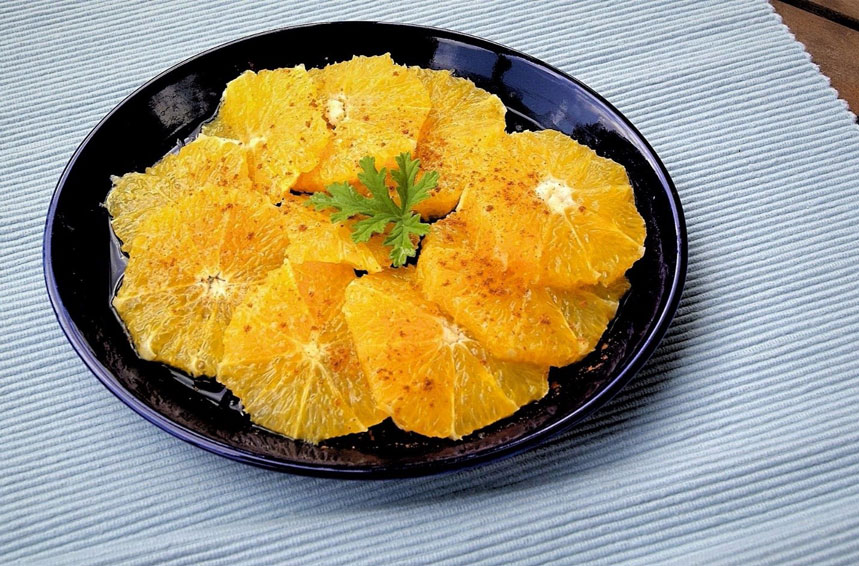
Imagine taking a gentle sip of this exquisite nectar, and instantly, you’re enveloped in the delicate aroma of fresh orange blossoms, transported to the sun-kissed groves of Morocco.
- Is a fragrant elixir with a delicate and enchanting aroma
- Has therapeutic properties
- Imparts a subtle and elegant taste
- May lose its aromatic qualities when not stored properly
- Is obtained through a process called steam distillation. Bitter orange blossoms, the flowers of the Citrus aurantium tree, are placed in a large container with water. As the water is heated, steam rises through the blossoms, capturing the aromatic essence and oils.
Overview of Best Foods & Drinks to Try Out in Morocco
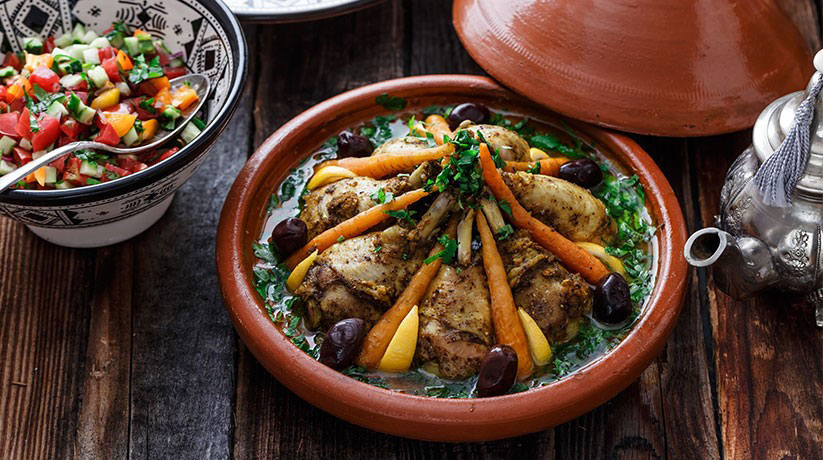
When it comes to Morocco, there are a few dishes that you won’t find on the menu, and that’s because of some cultural and religious considerations.
You won’t spot any dishes with pork, alcohol or its derivatives in Morocco. That’s because the majority of Moroccans follow Islamic dietary laws, and pork and alcohol are considered a big no-no in their religious beliefs. It’s tagged as “haram,” which means it’s forbidden.
Embrace the culinary delights that Morocco has to offer while being mindful of their cultural and religious practices. Enjoy your culinary adventure!
GET SMARTER >>> Best Destinations for Adventure Vacation in Africa
How to choose Best Foods & Drinks to Try Out in Morocco
Local Recommendations
Seek out recommendations from locals or fellow travelers who have experienced Moroccan cuisine firsthand. Locals know the hidden gems and authentic eateries that may not be as well-known to tourists.
Ask for Ingredients and Descriptions
If you’re unsure about a dish’s ingredients or preparation, don’t hesitate to ask the server or chef. Knowing what goes into a meal can help you choose according to your preferences and dietary restrictions.
Join a Food Tour
Consider joining a guided food tour led by local experts. These tours often provide a curated selection of the best dishes and drinks while offering valuable insights into Moroccan food culture.
Pay Attention to Seasonality
Many Moroccan dishes incorporate seasonal ingredients, so be aware of what’s in season during your visit to savor the freshest and most flavorful options.
Pros & cons of Best Foods & Drinks to Try Out in Morocco
Pros
- Allows immerse yourself Moroccan culture, traditions and hospitality
- Offers a wide variety of dishes and regional specialties
- Gives you authentic taste of traditional cuisines
Cons
- May experience allergies and dietary restrictions
- May experience potential stomach discomfort due to street foods and certain spices
What to Watch Out For
Hygiene and Cleanliness
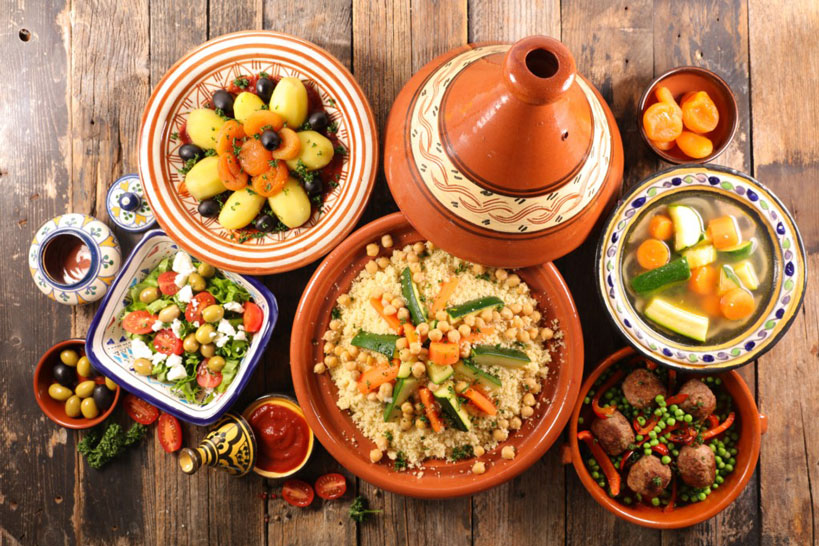
Look for restaurants and food stalls that maintain proper hygiene and cleanliness. Check if the establishment appears clean and if the food is prepared in a sanitary manner.
Food Quality
Seek out fresh ingredients and well-prepared dishes. Consider eating at busy places with a high turnover of customers, as this often indicates good food quality.
Food Allergies and Dietary Restrictions
If you have any food allergies or dietary restrictions, communicate them clearly to the servers or chefs to ensure that your chosen dishes are safe for you to consume.
Avoiding Undercooked Food
While trying local delicacies, ensure that meats and seafood are cooked thoroughly to avoid any potential health risks.
Spice Levels
Moroccan cuisine is known for its flavorful spices. If you’re sensitive to spice, ask for milder options or sample dishes before diving into a full meal.
Reputable Establishments
When in doubt, opt for restaurants or food vendors that come recommended by locals or have positive reviews online.
Pro Tips
- Go on a food tour
- Ask for recommendation
- Pair with local drink
- Explore food market
- Engage with chefs and cooks
Recap
Remember to be adventurous and explore the local flavors, try street food, and seek out regional specialties. Whether you’re indulging in tagine or sipping on mint tea, each dish and drink take you on a mouthwatering journey through the diverse and vibrant cuisine of Morocco.





